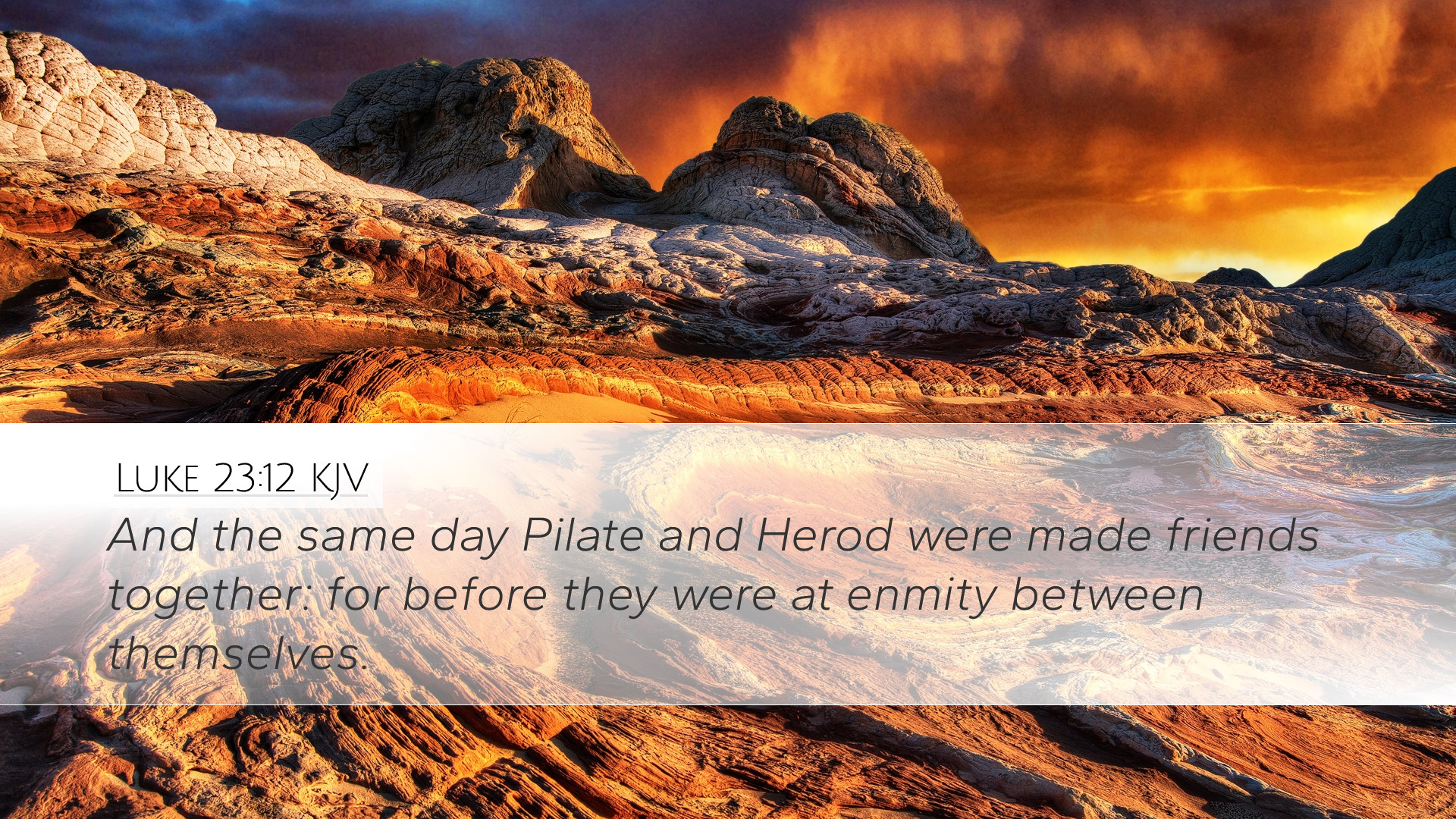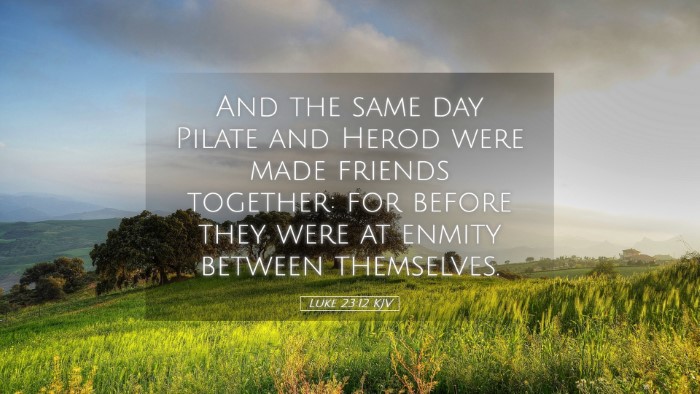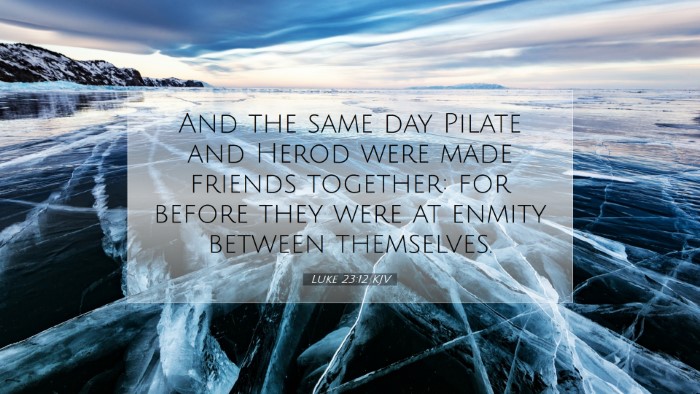Commentary on Luke 23:12
Verse Context: Luke 23:12 states, “And that day Pilate and Herod were made friends together: for before they were at enmity between themselves.” This moment occurs during the trial of Jesus, illustrating significant political and personal dynamics involving Pilate, the Roman governor, and Herod, the tetrarch of Galilee.
Historical and Political Background
Matthew Henry notes that the relationship between Pilate and Herod had been marked by hostility prior to this event. Traditionally, the two leaders had mutual disdain, partly due to their differing views on governance and their respective jurisdictions. The impetus for this newfound friendship was the significant moment in the trial of Jesus, as both leaders were drawn into the affairs of this controversial figure.
Albert Barnes elaborates that this event serves as a political maneuver, suggesting that the shared interest in condemning Jesus prompted Pilate and Herod to reconcile their differences. This alliance highlights the political alliances formed out of expediency, demonstrating how power dynamics can shift in the face of significant events.
Theological Insights
The reconciliation of Pilate and Herod around the trial of Jesus serves as a poignant theological commentary on the nature of human authority. Adam Clarke remarks that this moment underscores the transient nature of earthly power and the ultimate futility of political intrigue in the face of divine justice.
The fact that these two rulers united against Jesus further illustrates the theme of rejection and the societal consensus against the Christ. Their alliance, stricken with irony, emphasizes that even those at odds can come together to oppose the truth.
Spiritual Implications
From a pastoral perspective, this verse carries profound implications concerning human relationships in the realm of ministry and beyond. Matthew Henry suggests that the friendship born out of a mutual goal—though perhaps selfish—serves as a reminder that individuals may sometimes unite for wrong purposes, leading to complicity in evil deeds. The text invites believers to reflect on their personal motivations for alliances and friendships.
Albert Barnes further asserts that the reconciliation reminds us that even believers may sometimes find themselves in uniquely uncomfortable alliances when led by the tide of public opinion or societal expectations. It poses a challenge to discern right relationships and to stay true to one’s convictions amidst external pressures.
Role of Jesus in Unity and Division
This moment in court illustrates another layer of Jesus' role as both a unifier and a divider. Adam Clarke posits that through His crucifixion, Christ divides those who acknowledge Him as Lord from those who seek self-interest and worldly power. Pilate and Herod’s temporary unity is tainted by their opposition to the Messiah, suggesting that true unity can only exist in accordance with divine truth.
Practical Applications
For pastors and theologians, Luke 23:12 serves as a springboard for discussing the nature of true community and the motivations behind unity. Matthew Henry encourages leaders to foster genuine fellowship marked by love and truth, rather than convenient alliances driven by external pressures or selfish gain.
Points to Consider:
- Evaluate the Nature of Alliances: Consider whether your alliances in ministry or life reflect a godly purpose or merely reflect convenience.
- Uphold Truth in Relationships: Seek to build connections that are founded on shared mission and godly truth, not solely on mutual interests.
- Anticipate Opposition: Understand that in the pursuit of righteousness, one may face opposition, even from unlikely allies.
Conclusion
The events surrounding Luke 23:12 encapsulate the tumultuous intertwining of human politics with divine providence. The reconciliation of Pilate and Herod stands as a testimony to the complexities of human relationships, the motivations of power, and the ultimate authority of Christ. In a world often marked by division, this passage challenges believers to seek unity in Christ and to understand the broader implications of their choices in the face of moral and spiritual truths.


